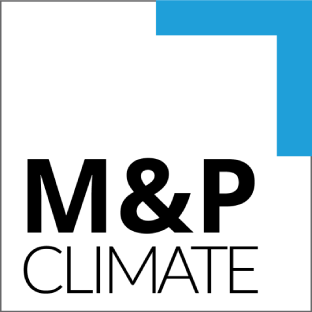The Intergovernmental Panel on Climate Change (IPCC) presented the third part of its 6th Assessment Report on 4 April 2022. The current report focuses on measures to mitigate climate change. The IPCC warns of significant global warming and calls for much higher CO₂ savings. Emissions would have to fall by 2025 at the latest if the 1.5 degree target is to be achieved at all. Currently, CO₂ emissions continue to rise and humanity is on a direct path to a 3 degree warmer world. 🌅
The Sixth IPCC Assessment Report (AR6) with the contribution of Working Group III shows in Part 3 what humanity must do to limit warming to 1.5 degrees Celsius. This requires a multitude of measures: Phasing out fossil fuels and massively expanding renewable energies♻️, greener cities, preservation of forests, sustainable agriculture, healthier diets through less meat, changing mobility, building a circular economy, decarbonising energy-intensive industry, improving energy efficiency, extensive electrification away from burning fossil fuels, switching to alternative fuels such as hydrogen, creating carbon sinks through appropriate land use, and Negative Emissions Technologies (NETs) to take CO₂ out of the atmosphere.🌄
In the report, cities and the private sector play a special role as social actors in tackling the problems of climate change. New in the report is the systematic linking of climate protection measures with development economics and policy. Social and political governance issues play an important role in the report. Furthermore, the role of innovation and technology transfer in combating climate change is emphasised.
The report highlights the equity gap between rich and poor households by showing that 10% of households with the highest per capita income are responsible for 34-45 % of global greenhouse gas emissions, while the poorest 50% of households account for only 13- 15 % of emissions.
Location | CO₂ emissions per capita in 2019 |
Africa | 1.1 t CO₂ |
India | 1.9 t CO₂ |
Sweden | 4.1 t CO₂ |
EU | 6.5 t CO₂ |
China | 7.3 t CO₂ |
Germany | 8.5 t CO₂ |
USA | 16.0 t CO₂ |
Source: Our World in Data
Furthermore, the role of innovation and technology transfer in combating climate change is emphasised. There is also good news in this regard: The technological possibilities to reduce greenhouse gas emissions are growing. The costs of key technologies, e.g. for the global energy transition, are falling. For example, from 2010-2019, the cost of solar energy fell by 85 %, wind energy by 55 % and lithium-ion batteries by 85 % and their use increased.
The report notes the gap of over 80% between current climate-related financial flows and global needs. Private, environmental and sustainable investments need to be realised to close this gap. In addition, framework conditions need to be put in place such as better coordinated and efficient policies at national and international levels, redirecting financial flows from carbon-intensive assets to sustainable and resilient activities, and strengthening the capacity to act on the ground (cities, municipalities).
For the first time in an IPCC report, strategies for changing consumption behaviour were reported on in a separate chapter. The potential to reduce emissions in the end-use sectors is about 40-70 % in 2050 measured against the business-as-usual scenario. A plant-based diet can reduce emissions by up to 50 % compared to the emissions-intensive Western diet.
In summary, the IPCC states in its 6th Assessment Report that scenarios that limit warming to 1.5 degrees include system transformations in all sectors and all countries. This results in far-reaching distributional consequences, such as changes in consumer behaviour or in the structure of employment and the economy. In order to facilitate a consensus for these changes, justice must be placed in the foreground and a broad participation of those affected must be made possible.
The MuP Group is helping to achieve compliance with climate targets as part of "Engineering for a Better Tomorrow". Through M&P GO.BLUE.NOW, the limitation of global warming to 1.5° is pursued together with customers and partners.🏞
#G7 #Climate #1.5° #EngineeringForABetterTomorrow #mupgroup

